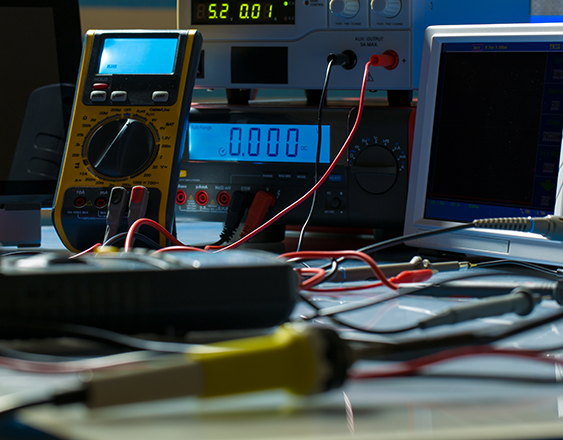
The Importance of Traceability and Audit Preparation in Aerospace Manufacturing Calibration
Calibration is a critical aspect of maintaining quality control in any industry, but it’s particularly important in the aerospace industry. Precision and accuracy are essential in aerospace, and even small deviations can have significant consequences, such as product defects, non-compliance, and safety issues. This article explores the importance of calibration in the aerospace industry and how it contributes to consistent, reliable, and safe operations.
Why is Calibration Important in Aerospace?
Aerospace companies rely on a wide range of measuring tools and equipment to ensure the quality and safety of their products. These tools and equipment must be accurate, precise, and reliable to provide consistent and repeatable results. Regular calibration ensures that these tools and equipment function correctly, consistently, and accurately.
One of the primary reasons for keeping measuring tools and equipment calibrated is to ensure accuracy and precision. Regular calibration helps to guarantee that the tools and equipment continue to provide accurate and reliable measurements. This is particularly important in the aerospace industry, where even minor deviations can result in significant consequences.
Another critical reason for keeping measuring tools and equipment calibrated is to ensure compliance with industry standards and regulations. The aerospace industry has several standards that require companies to maintain and calibrate their tools and equipment regularly. For example, the AS9100D standard requires companies to maintain and calibrate their measuring equipment to ensure the accuracy and reliability of their products. By regularly calibrating their equipment, companies can demonstrate their compliance with these standards and maintain their certification.
Consistent production processes are also essential in the aerospace industry. Consistency in production processes helps ensure that the final product meets the required specifications and quality standards. This consistency helps to minimize any potential deviations that could cause significant issues in the aerospace industry. Regular calibration contributes to consistent production processes by ensuring that the measuring tools and equipment used in the production process are accurate, precise, and reliable.
Traceability and audit preparation are other critical benefits of regular calibration. By documenting the performance and accuracy of tools and equipment during calibration, companies can demonstrate their compliance with industry regulations during internal and external audits. This traceability helps to show the company’s commitment to quality control and its efforts to maintain consistent performance.
Moreover, regular calibration can help reduce downtime and costs. By identifying potential issues with tools and equipment during calibration, companies can perform preventive maintenance and reduce the chance of unplanned downtime. This proactive approach can help minimize production delays and associated costs, as well as prolong the life of tools and equipment.
The Importance of Choosing the Right Calibration Service Provider
Partnering with a reliable calibration service provider is crucial for aerospace companies. A professional calibration service provider will have the expertise, experience, and equipment necessary to calibrate the measuring tools and equipment used in the aerospace industry. They will also be familiar with the industry standards and regulations and can ensure that the calibration process meets the necessary requirements.
It’s essential to choose a calibration service provider that offers comprehensive calibration services that meet AS9100D requirements. Such providers should offer a wide range of calibration services, including dimensional, electrical, and mechanical calibration, as well as provide a detailed calibration report. This report should include the results of the calibration, any adjustments made, and recommendations for preventive maintenance.
Additionally, calibration contributes to compliance with industry standards and regulations, consistent production processes, traceability and audit preparation, and reduction of downtime and costs. To ensure the accuracy and reliability of their products, aerospace companies should partner with a reliable calibration service provider that offers comprehensive calibration services meeting AS9100D requirements. At JM Fabrication, we understand the importance of calibration in the aerospace industry and have extensive experience and commitment to excellence. We offer a range of comprehensive calibration services that meet AS9100D requirements, including on-site and off-site calibration, preventive maintenance, repairs, and certifications. Our team of experts uses state-of-the-art equipment and techniques to provide accurate and reliable measurements, and we ensure traceability and audit preparation by documenting the performance and accuracy of tools and equipment during calibration.
Don’t hesitate to contact us today at 817-652-0526 or quotes@jmfab.com to learn more about our services and how we can help your business maintain its competitive edge in the aerospace industry. Our goal is to provide exceptional customer service and help our clients achieve their quality control goals by delivering accurate and reliable measurement results. Let us be your trusted calibration partner in the aerospace industry.